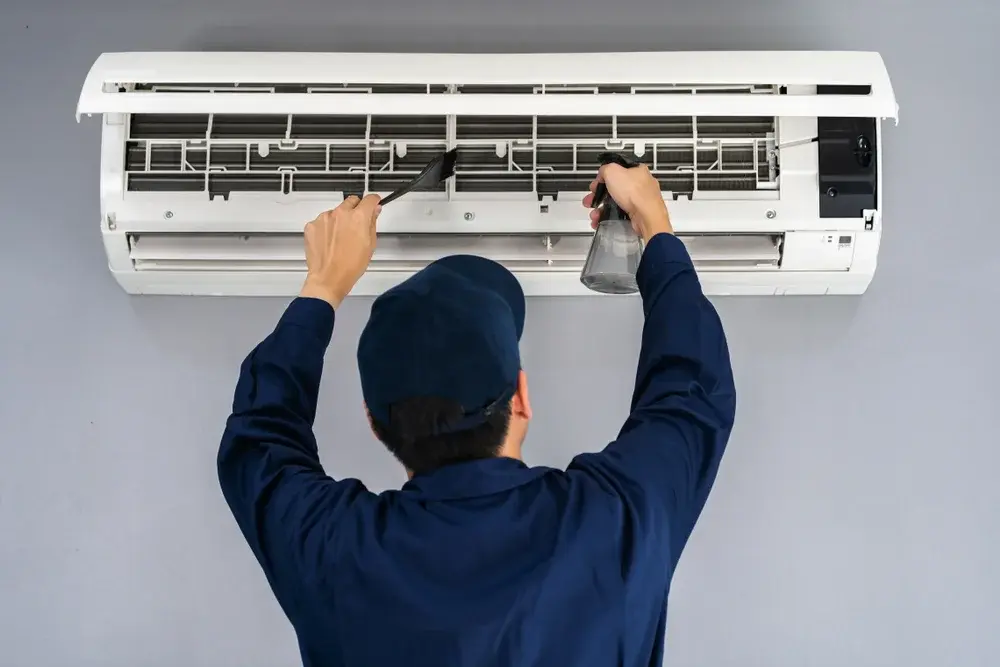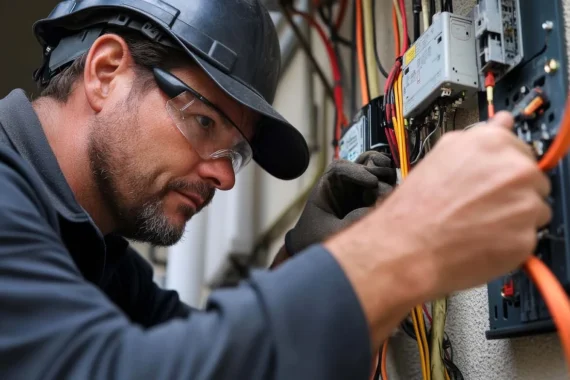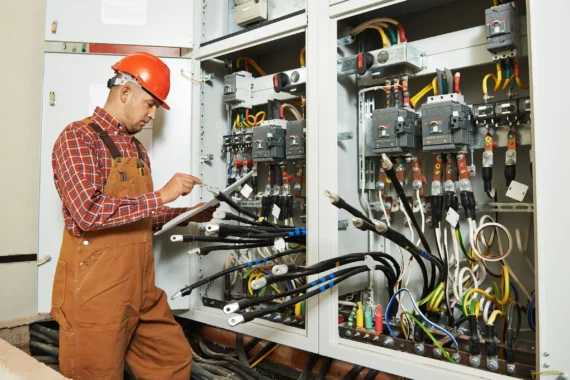Dubai’s climate, characterized by scorching summers and high humidity, makes air conditioning not a luxury but an absolute necessity. However, simply installing an AC unit is no longer sufficient for modern living. The integration of Smart Home AC Installation Dubai solutions, offering Advanced Climate Control, is rapidly transforming how residents manage comfort, efficiency, and convenience. This article explores the key factors, tradeoffs, and challenges involved in embracing this intelligent approach to climate management in the unique environment of AC Installation in Dubai.
Understanding Smart Home AC Installation in Dubai
Smart home AC systems integrate advanced technologies—such as Wi-Fi connectivity, AI-based temperature learning, and home automation platforms—to provide adaptive and efficient cooling solutions. In Dubai, where summer temperatures often soar above 45°C (113°F), smart air conditioning isn’t just a smart option; it’s a strategic necessity.
The Rise of Smart Home AC in Dubai
The scorching summers in Dubai make air conditioning an indispensable part of daily life. However, traditional AC systems can be energy-intensive. This is where “Smart Home AC Installation Dubai | Advanced Climate Control” comes into play. Smart AC units integrate with intelligent home systems, offering features like remote control, automated adjustments based on occupancy and weather, and even AI-driven learning of user preferences. These capabilities are transforming comfort, convenience, and crucially, energy efficiency in Dubai’s residences.
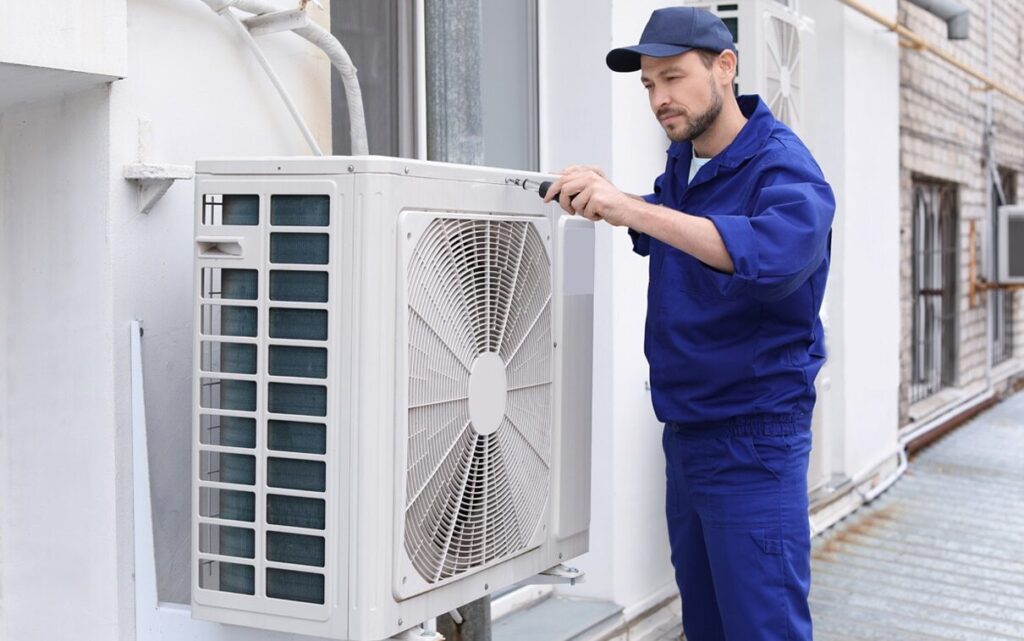
Key Factors Impacting Smart Home AC Installation
Several factors influence the successful implementation of advanced climate control in Dubai homes:
- Cooling Capacity and Sizing: Accurate sizing of the AC unit is paramount in Dubai’s climate. An undersized unit will struggle to cool the space, leading to continuous operation and high energy bills, while an oversized unit will short-cycle, leading to poor dehumidification and uneven cooling. Professionals must conduct precise load calculations considering room size, insulation, window exposure, and occupancy.
- Energy Efficiency Ratings (EER/SEER): Dubai’s DEWA (Dubai Electricity and Water Authority) regulations actively encourage the use of energy-efficient appliances. AC units with high Energy Efficiency Ratio (EER) or Seasonal Energy Efficiency Ratio (SEER) ratings are crucial. Inverter technology, which allows compressors to run at variable speeds, significantly contributes to energy savings by maintaining consistent temperatures without constant on-off cycling. Eco-friendly refrigerants like R32, with lower Global Warming Potential (GWP), are also increasingly preferred.
- Compatibility with Smart Home Systems: For a truly integrated “Smart Home AC Installation Dubai” experience, the chosen AC system must be compatible with popular smart home platforms (e.g., Google Home, Alexa, Apple HomeKit) and other smart devices in the house. This enables seamless control and automation, often through a single mobile application.
- Brand Reliability and Warranty: Given the high demand and critical function of AC in Dubai, selecting a reputable brand known for durability and performance in extreme conditions is essential. Brands like Daikin, LG, Samsung, Gree, and O General are popular choices, offering a range of smart features and robust designs. A good warranty policy provides peace of mind for long-term operation.
- Installation Expertise and Compliance: “AC Installation in Dubai” is a specialized task. It requires certified professionals to ensure proper sizing, correct refrigerant handling, secure electrical connections, and adherence to Dubai Municipality and DEWA regulations. Improper installation can lead to reduced efficiency, frequent breakdowns, and even safety hazards. For central AC systems, permits may be required
- Tradeoffs and Challenges
- Smart AC installation presents several tradeoffs:
- Cost vs. Efficiency: High-efficiency systems reduce energy bills but come at a premium.
- Complexity vs. Control: Advanced integrations offer greater control but require technical expertise.
- Immediate Comfort vs. Long-Term ROI: While some users may prioritize instant relief from Dubai’s heat, others may focus on sustainability and smart automation.
- Another challenge lies in the rapid evolution of smart technologies. As systems become more advanced, compatibility with existing devices and future upgrades must be considered.
Challenges Associated with Different Approaches
Implementing “Smart Home AC Installation Dubai | Advanced Climate Control” presents certain challenges:
When making decisions about “Smart Home AC Installation Dubai | Advanced Climate Control,” it is crucial to consider the impact on several aspects:
- Energy Consumption and Sustainability: The most significant impact is on energy consumption. Smart ACs, with their ability to optimize usage, contribute directly to lower electricity bills for homeowners and a reduced carbon footprint for the city, aligning with Dubai’s sustainability goals and the UAE National Climate Change Plan.
- Indoor Air Quality (IAQ): Advanced climate control often includes features like enhanced air filtration and humidity control. This significantly improves indoor air quality, which is crucial in a dusty environment like Dubai, benefiting occupants with allergies or respiratory conditions.
- Comfort and Lifestyle: The ultimate goal of advanced climate control is enhanced comfort. Smart AC systems provide consistent temperatures, personalized cooling, and the convenience of remote management, leading to a more comfortable and modern lifestyle for residents.
- Property Value: Investing in “Smart Home AC Installation Dubai” can increase the resale value and appeal of a property in Dubai’s competitive real estate market, as smart features are increasingly sought after by buyers.
Key Factors Impacting Smart AC Installation in Dubai
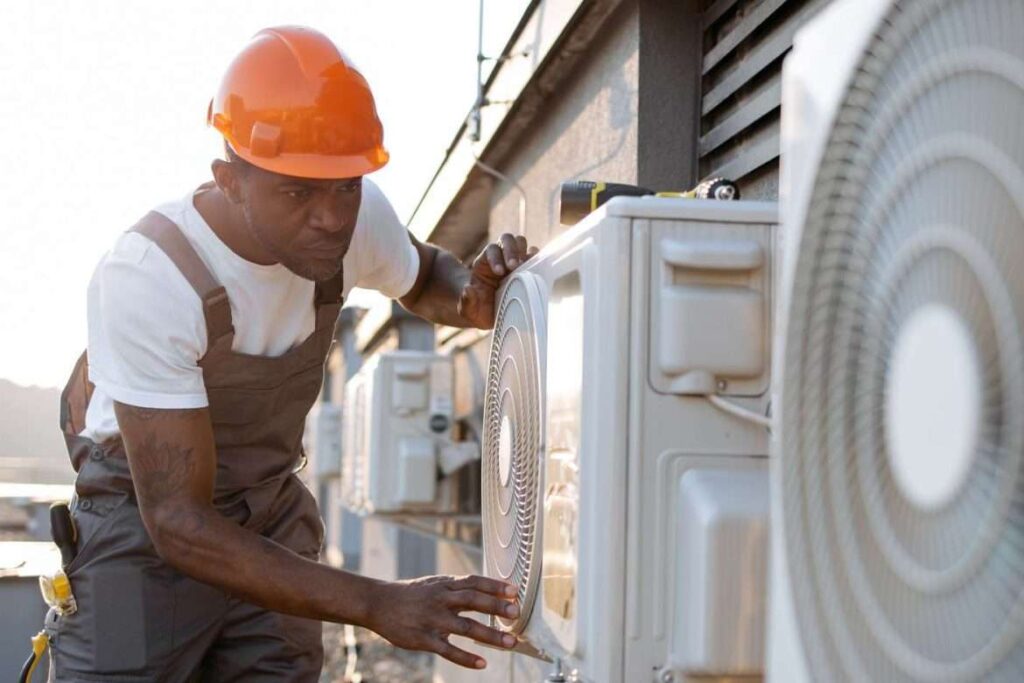
- Climate Demands & System Capacity:
- Factor: Dubai’s extreme heat requires powerful, correctly sized systems. Undersized units struggle, oversized units short-cycle (turn on/off frequently), wasting energy and reducing dehumidification.
- Tradeoff: High-capacity inverter ACs (which adjust power output) offer superior efficiency and comfort but come at a higher initial cost than traditional units.
- Challenge: Accurate load calculation is paramount. Poor calculations lead to inefficiency and discomfort. Requires experienced professionals familiar with Dubai’s specific conditions (solar gain, building materials).
- Energy Efficiency & Sustainability:
- Factor: With rising energy costs and environmental awareness, efficiency (measured by SEER – Seasonal Energy Efficiency Ratio) is critical. Smart controls optimize usage, but the underlying AC unit’s efficiency is fundamental.
- Tradeoff: Top-tier SEER inverter systems offer the best long-term savings but have the highest upfront price. Balancing initial investment with projected energy savings is key.
- Challenge: Navigating the range of efficiency ratings and understanding the real savings potential in Dubai’s unique, year-round cooling demand. Integration with Dubai’s evolving green building regulations (like Al Sa’fat) may also be a consideration.
- Technology Choice & Integration:
- Factor: Options range from basic Wi-Fi thermostats to full-home systems with multiple sensors and integration hubs. Compatibility with existing or planned smart home platforms (Apple HomeKit, Samsung SmartThings, proprietary brand ecosystems) is crucial.
- Tradeoff: Simpler systems are cheaper and easier to install but offer fewer features and less granular control. Comprehensive systems offer maximum automation and efficiency but require more complex installation and investment.
- Challenge: Ensuring seamless integration without creating a fragmented smart home with multiple incompatible apps. Future-proofing choices against rapidly evolving technology. Retrofitting smart controls to older AC systems can sometimes be limited or complex.
- Installation Quality & Expertise:
- Factor: AC Installation in Dubai is arguably more critical for smart systems. Precision is needed for refrigerant handling, electrical connections, thermostat/sensor placement, ductwork sealing (for central systems), and network configuration.
- Tradeoff: Opting for the cheapest installer often leads to poor workmanship, negating the benefits of expensive smart technology and potentially causing higher running costs or premature failure. Investing in certified, experienced professionals ensures optimal performance.
- Challenge: Finding installers with specific expertise in both high-end AC systems and smart home integration. Dubai’s market has many providers, but quality varies significantly.
- Cost Considerations:
- Factor: Smart AC systems involve costs for the hardware (inverter AC units, smart thermostats, sensors, hubs), professional installation, and potential home network upgrades.
- Tradeoff: Higher initial investment vs. long-term energy savings, enhanced comfort, increased property value, and potential maintenance cost reductions. Budget constraints may necessitate prioritizing core features (e.g., zoning for key areas) over comprehensive whole-home automation initially.
- Challenge: Accurately calculating the ROI, which depends heavily on usage patterns, electricity tariffs, and the efficiency gains achieved.

